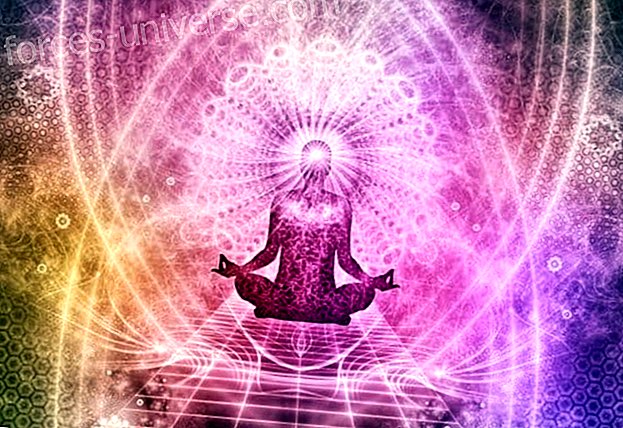
Miguel Ruiz, born in a family of healers and raised in rural Mexico by a curandera mother and a Nagual grandfather, seemed destined to maintain the family tradition and continue transmitting Toltec esoteric knowledge. However, attracted by modern life he preferred to study medicine and became a surgeon, until, in the early seventies, an almost death experience opened in his life a stage of introspection that led him back to the ancient ancestral wisdom .
Dr. Miguel Ruiz taught and harmonized his knowledge in workshops, conferences and seminars guided to Teotihuacan, Mexico, the ancient city that the Toltecs knew as "The place where man transforms into God."
We extract a part of his book The Four Agreements:
Domestication and the dream of the planet.
What you see and hear right now is nothing more than a dream. In this very moment you are dreaming. You dream with your brain awake.
Dreaming is the main function of the mind, and the mind dreams twenty-four hours a day. He dreams when the brain is awake and also when he is asleep. The difference is that, when the brain is awake, there is a material framework that makes us perceive things in a linear way. When we sleep we don't have that frame, and the dream tends to change constantly.
Human beings dream all the time. Before we were born, "those" who preceded us created a huge external dream that we will call the dream of society or The Dream of the Planet. The dream of the planet is the collective dream made of billions of smaller dreams, of personal dreams that, together, create a dream of a family, a dream of a community, a dream of a city, a dream of a country, and finally, a dream of all mankind. The dream of the planet includes all the rules of society, their beliefs, their laws, their religions, their different cultures and ways of being, their governments, their schools, their social events and their celebrations.
We are born with the ability to learn to dream, and the human beings that precede us teach us to dream the way society does. The external dream has so many rules that, when a child is born, we get his attention to introduce these rules into his mind. The external dream uses mom and dad, school and religion to teach us to dream.
Attention is the ability we have to discern and focus on what we want to perceive. We perceive millions of things simultaneously, but we use our attention to retain what interests us in the foreground of our mind. The adults around us caught our attention and, through repetition, introduced information into our minds. This is how we learned everything we know.
Using our attention we learned a complete reality, a complete dream. We learned how to behave in society: what to believe and what not to believe, what is acceptable and what is not, what is good and what is bad, what is beautiful and what is ugly, what is right and what is wrong. Everything was already there: all the knowledge, all the concepts and all the rules on how to behave in the world.
When we went to school, we sat in a small chair and paid attention to what the teacher taught us. When we went to church, we paid attention to what the priest or pastor told us. The same dynamic worked with mom and dad, and with our brothers and sisters. Everyone was trying to get our attention. We also learned to capture the attention of other human beings and we developed a need for attention that always ends up being very competitive. The children compete for the attention of their parents, their teachers, their friends: “Look at me! - Look what I do! - Hey, I'm here! ” The need for attention becomes very strong and continues into adulthood.
The external dream captures our attention and teaches us what to believe, starting with the language we speak. Language is the code that we humans use to understand and communicate. Each letter, each word of each language, is an agreement. We call this a page of a book; The word page is an agreement that we understand. Once we understand the code, our attention is trapped and energy is transferred from one person to another.
You did not choose your language, your religion or your moral values: they were already there before you were born. We never had the opportunity to choose what to believe and what not to believe. We never chose the most insignificant of these agreements. We don't even choose our own name.
As children we did not have the opportunity to choose our beliefs, but we agreed with the information that other human beings transmitted to us from the dream of the planet. The only way to store information is by agreement. The external dream catches our attention, but if we disagree, we will not store that information. As soon as we agree with something, we believe it, and we call that "faith." To have faith is to believe unconditionally.
This is how we learned when we were children. Children believe everything adults say. We agreed with them, and our faith was so strong, that the belief system that had been transmitted to us totally controlled the dream of our lives. We did not choose these beliefs, and although perhaps we rebelled against them, we were not strong enough for our rebellion to triumph. The result is that we surrender to beliefs through our Agreement.
I call this process "the domestication of human beings." Through this domestication we learn to live and dream. In human domestication, the information of the external dream is transferred to the internal dream and creates our entire belief system. In the first place, the child is taught the name of things: mom, dad, milk, bottle ... Day by day, at home, at school, in the church and on television, "they tell us how to live", what kind of behavior is acceptable. The external dream teaches us how to be human beings. We have a whole concept of what a "woman" is and what a "man" is. And we also learn to judge: We judge ourselves, we judge other people, we judge our neighbors ...
We domesticate children in the same way we domesticate a dog, a cat or any other animal. To teach a dog, we punish and reward him. We train our children, whom we love so much, in the same way that we train any domestic animal: with a system of rewards and punishments. They told us: “You are a good boy, ” or “You are a good girl, ” when we did what Mom and Dad wanted us to do. When we didn't do it, we were "a bad girl" or "a bad boy."
When we didn't follow the rules, they punished us; when we fulfilled them, they rewarded us. They punished us and rewarded us many times a day. Soon we begin to be afraid of being punished and also of not receiving the reward, that is, the attention of our parents or other people such as brothers, teachers and friends. Over time we develop the need to get the attention of others to get our reward.
When we received the award, we felt good, and because of that, we continued doing what the others wanted us to do. Because of that fear of being punished and not receiving a reward, we began to pretend that we were what we were not, with the sole purpose of pleasing others, of being good enough for other people. We started acting to try to please mom and dad, teachers and the church. We pretended to be what we were not because we were afraid of being rejected. The fear of being rejected became the fear of not being good enough. In the end, we end up being someone we were not. We become a copy of mother's beliefs, dad's beliefs, the beliefs of society and the beliefs of religion.
In the domestication process, we lost all our natural tendencies, and when we were old enough for our mind to understand, we learned to say no. The adult said: Do not do this and do not do the other. We rebelled and answered: No! . We rebelled to defend our freedom. We wanted to be ourselves, but we were very small and the adults were big and strong. After a certain time, we began to feel fear because we knew that every time we did something wrong we would receive a punishment.
Domestication is so powerful that, at a certain moment in our lives, we no longer need anyone to tame us. We don't need mom or dad, school or church to tame us. We are so well trained that we are our own tamer. We are self-domesticated animals. Now we tame ourselves according to the belief system they transmitted to us and using the same system of punishment and reward. We punish ourselves when we don't follow the rules of our belief system; We reward ourselves when we are a good boy or a good girl
Our belief system is like the BOOK OF LAW that governs our mind. It is not questionable; whatever is in that BOOK OF LAW is our truth. We base all our judgments on him, even when they go against our own inner nature.
..
(Continue.)
Domestication and the dream of the planet, by Dr. Miguel Ruiz






